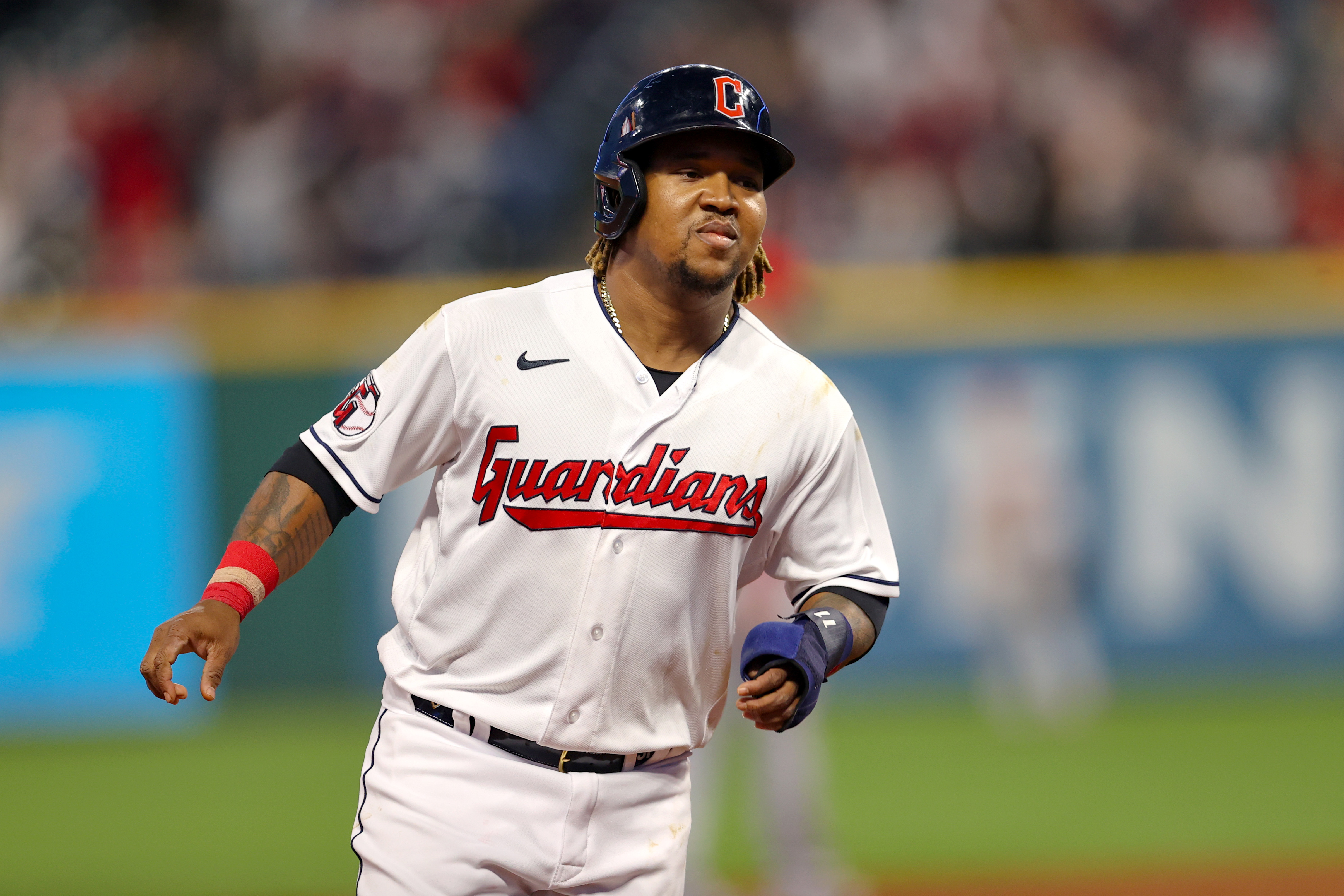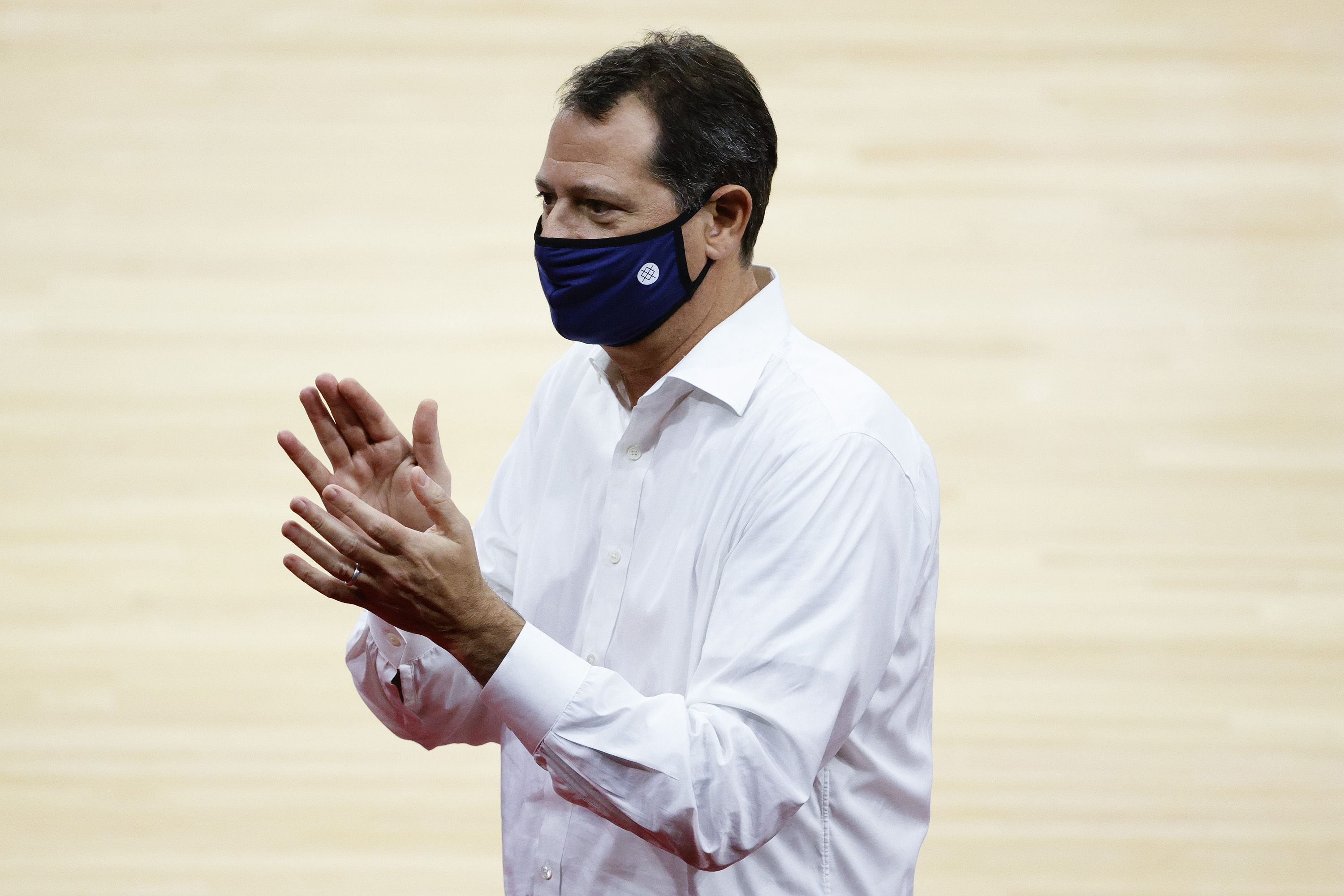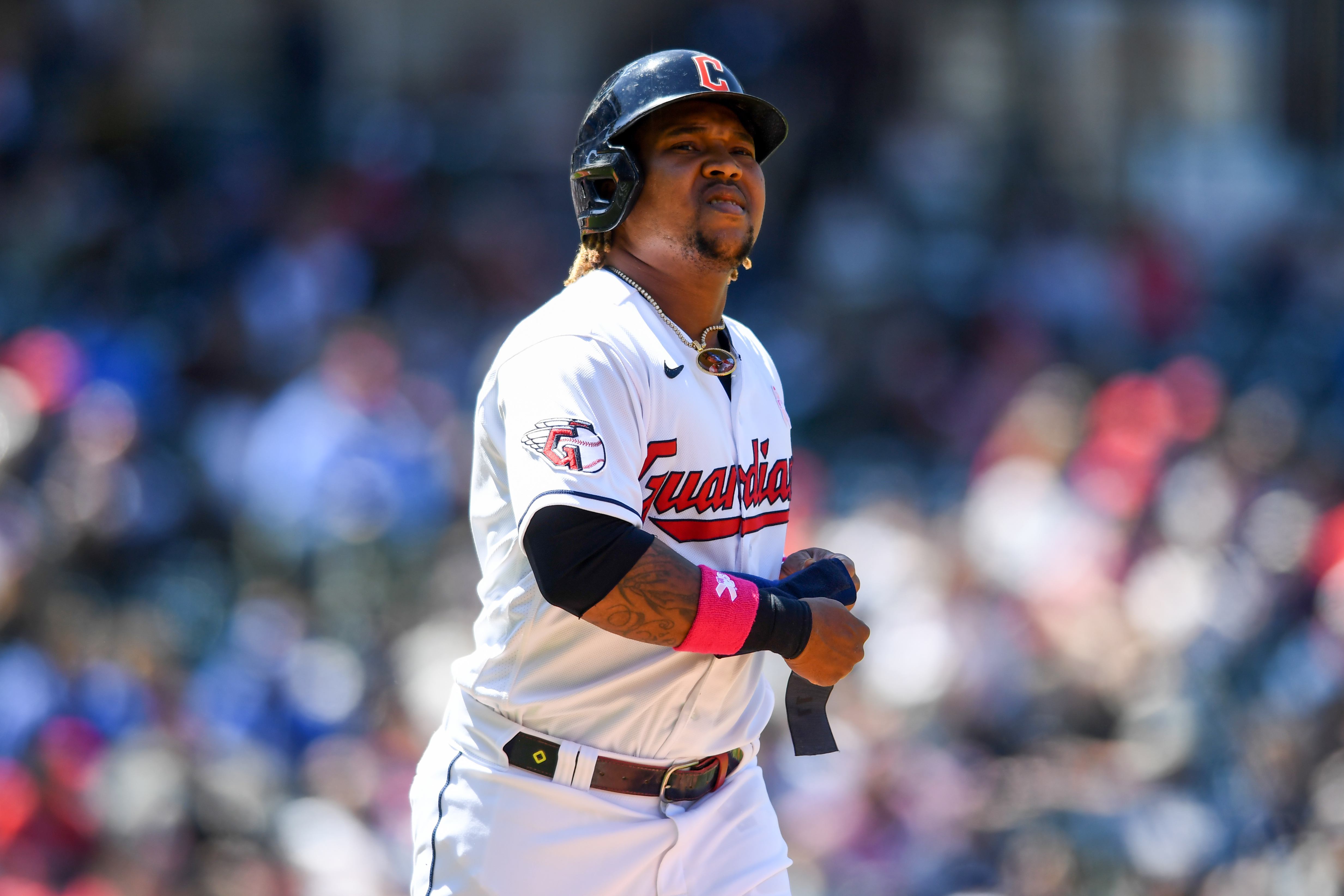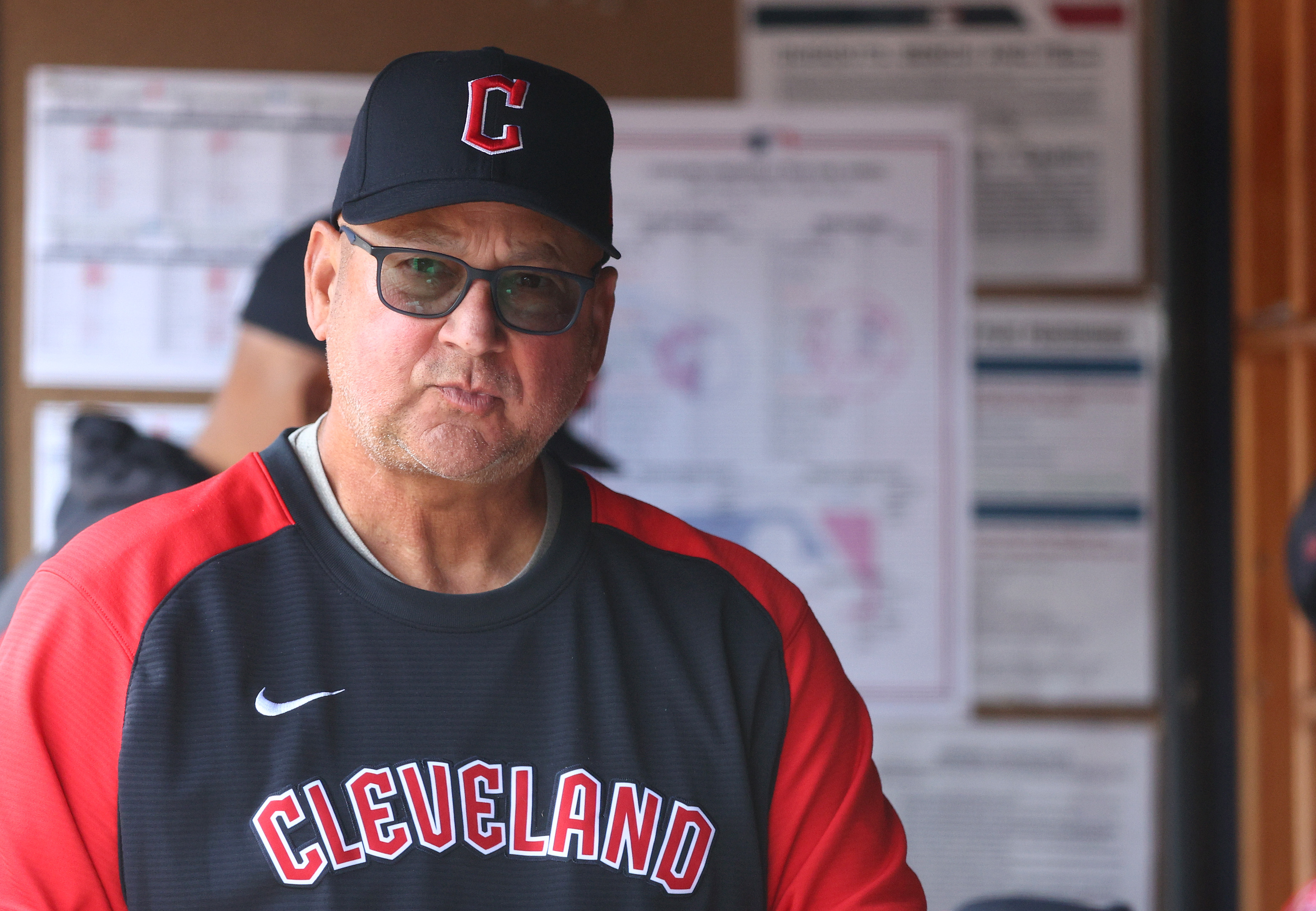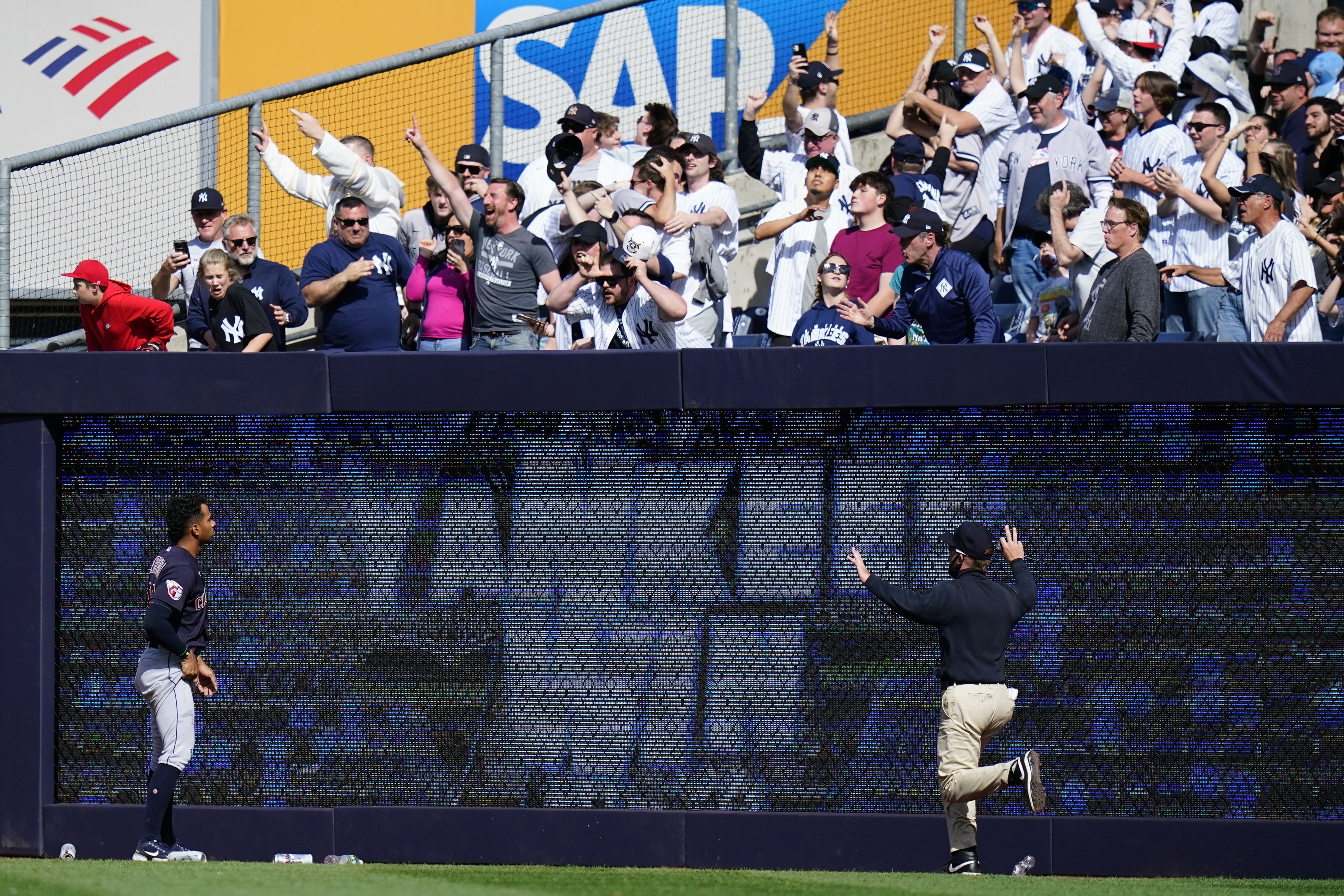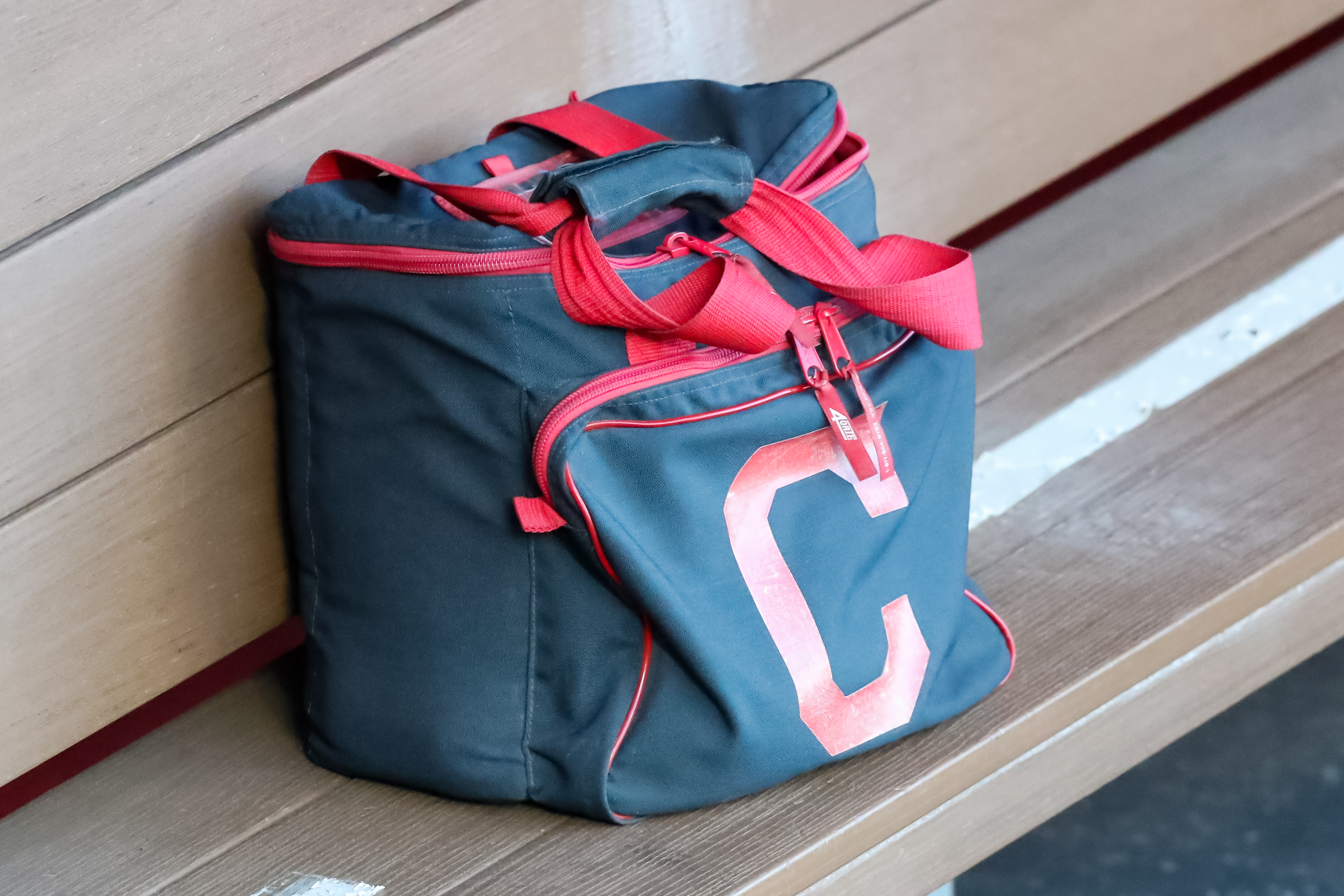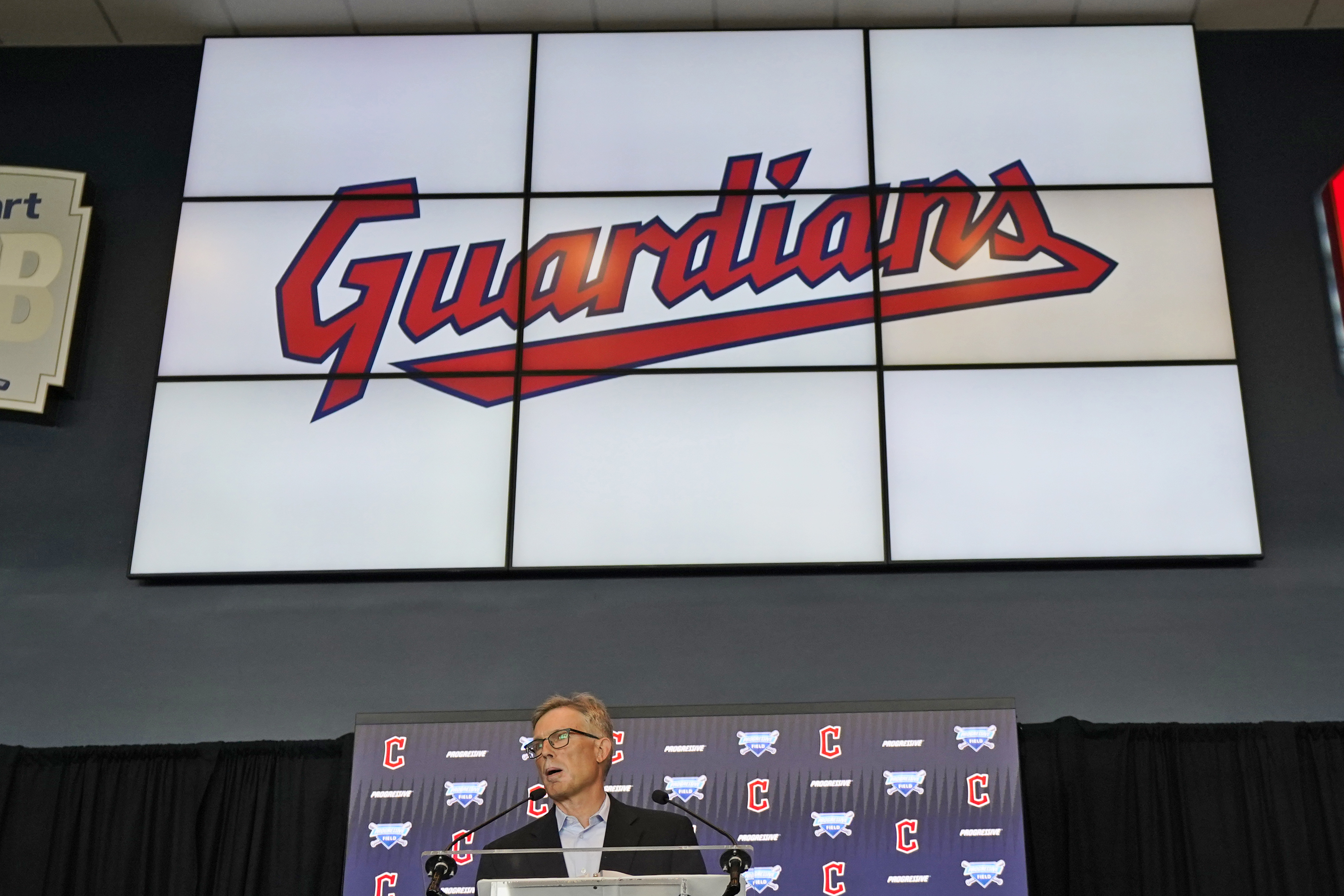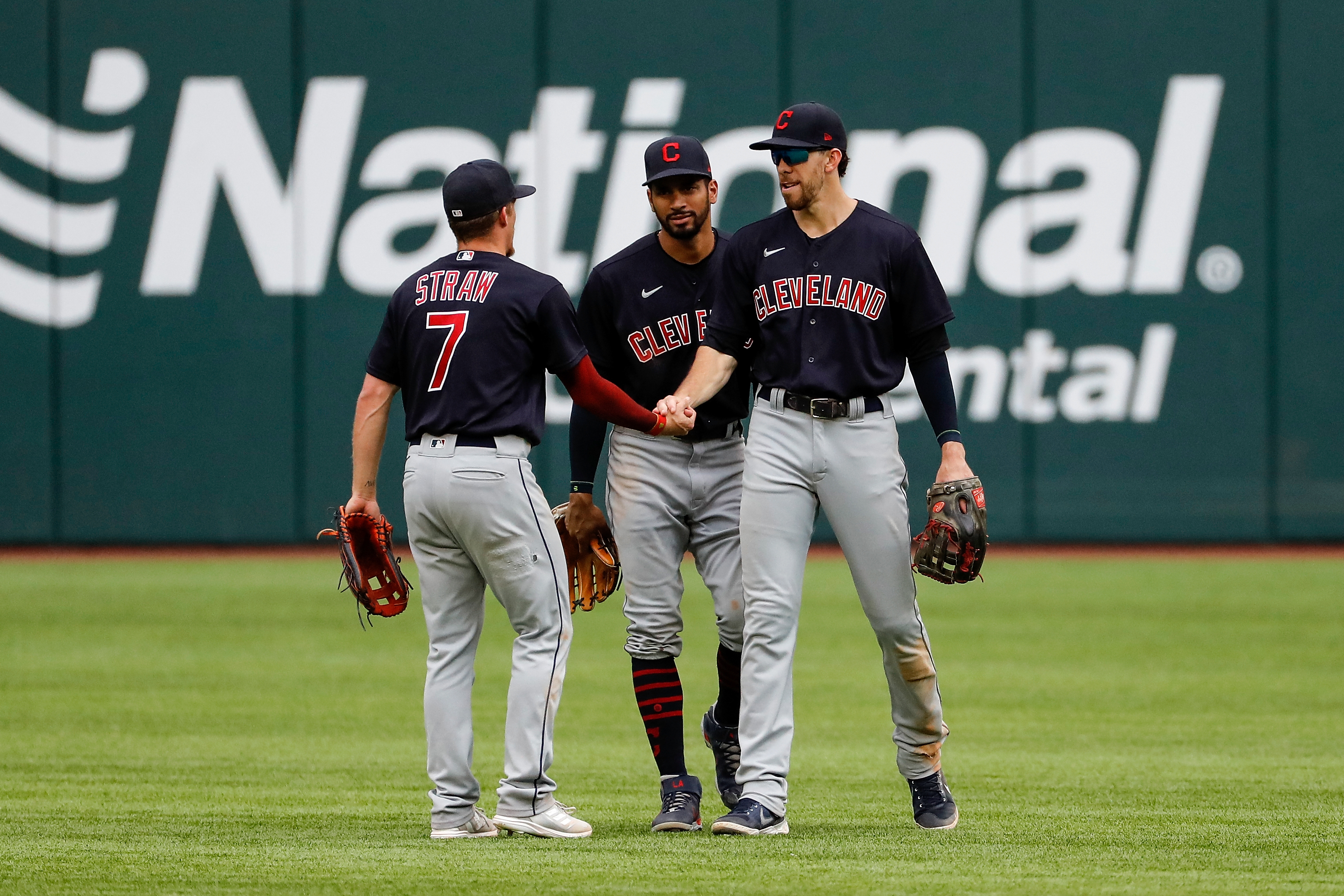Buying or Selling 1st-Place Guardians Making a Sneaky Deep Playoff Run
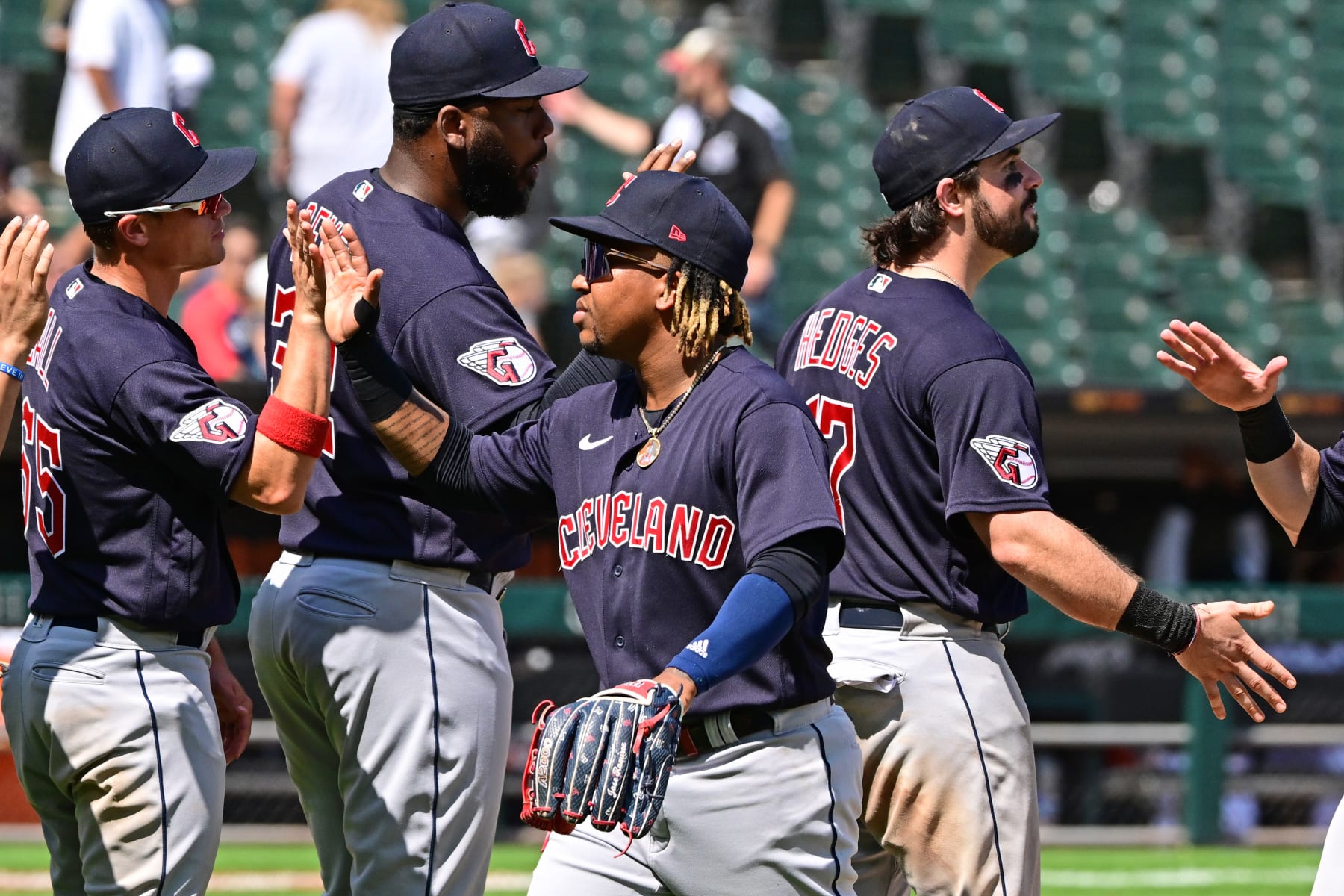
Of the six division leaders in Major League Baseball right now, the Cleveland Guardians are surely the one that's been talked about the least.
This may or may not be because they only just grabbed the lead in the American League Central on Wednesday, but it's nonetheless time to get serious about taking them seriously.
It's in part thanks to the Minnesota Twins' recent 5-9 skid that the Guardians are where they are right now, but this is hardly an "Oops, I guess we're in first" situation. The Guardians had been lingering in Minnesota's rear-view mirror for weeks, and they've made their move at the right time in the form of a five-game winning streak that's pushed their record to 59-52 and their lead over the Twins to 1.5 games.
A lead that small doesn't put the Guardians firmly in the driver's seat, but the odds suggest they might as well put the division-clinching bubbly on ice. FanGraphs gives Terry Francona's club a 44.6 percent chance of winning the AL Central, handily besting the Twins' 35.7 percent and the Chicago White Sox's 19.8 percent.
The catch is that these same odds peg the Guardians as a long shot for a deep playoff run. They have just a 26.9 percent chance of making it to the Division Series, a 9.7 percent to make it to the Championship Series and a 3.4 percent chance for the World Series.
To win the World Series? There's a number there, but it's pretty small. As in, 1 percent small.
As for whether these Guardians deserve more confidence than this, let's attempt to answer that question with a good, ol' fashioned game of "Buy or Sell."
Why to Buy the Guardians
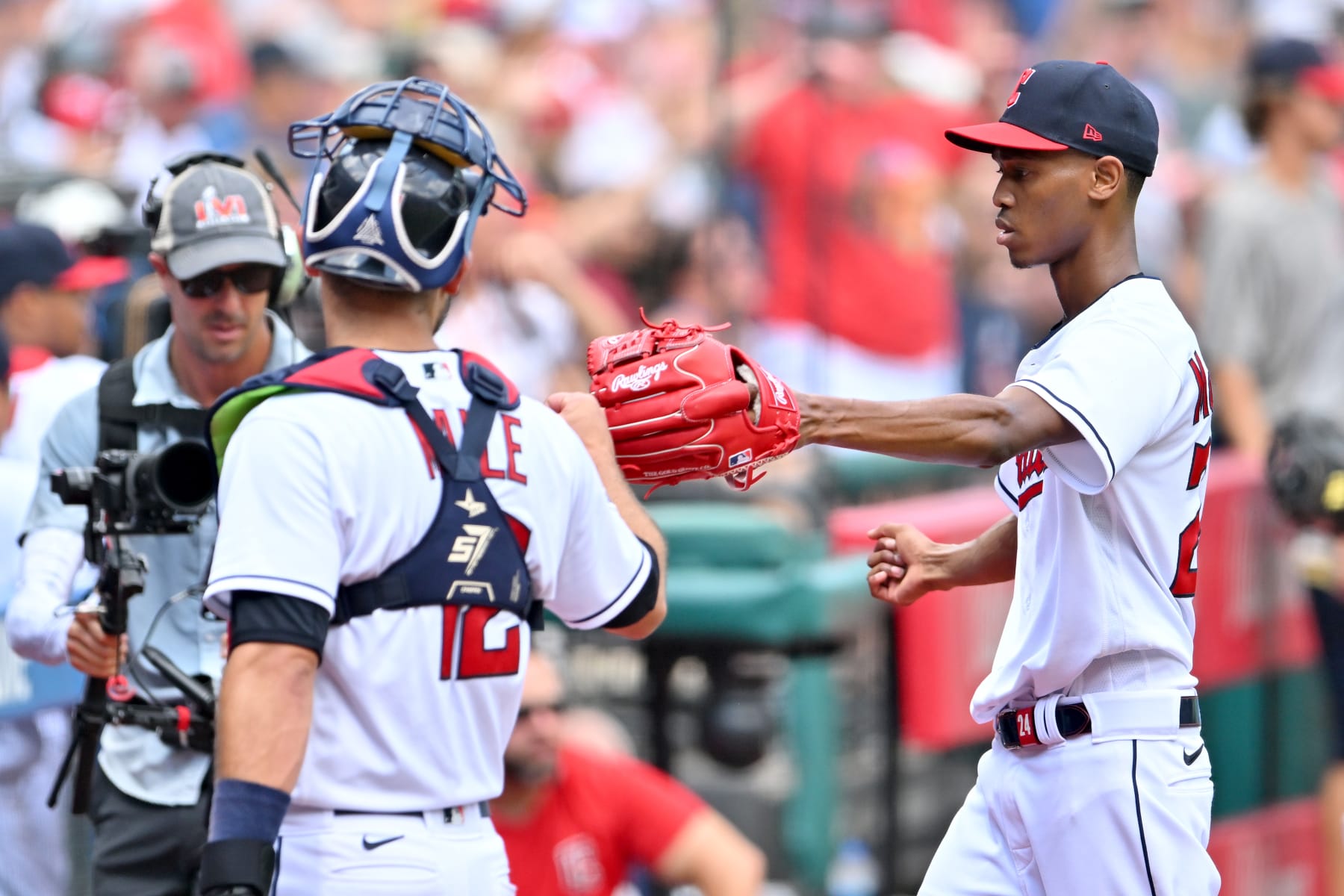
If there's one reason to believe that the Guardians would be a nightmare matchup in October, it's the one that Tigers manager A.J. Hinch keyed in on after his club took a 3-2 loss to Cleveland on Wednesday.
"They have a tremendous pitching staff,” Hinch told reporters.
For literal starters, there's Cleveland's one-two punch of 2020 AL Cy Young Award winner Shane Bieber and breakout star Triston McKenzie. The two of them have a combined 2.45 ERA over 13 starts since July 1, largely by way of dominance with breaking balls. Among AL hurlers, Bieber and McKenzie rank third and six on whiffs on breakers since the start of July.
Though the former is better known for his knuckle-curveball, it's the slider that's working best for him right now:
Meanwhile, McKenzie's 12-to-6 curve is about as effective as it is aesthetically pleasing:
As hot as Bieber and McKenzie have been, even they have nothing on Cleveland's late-inning relief trio of James Karinchak, Trevor Stephan and Emmanuel Clase. Since Karinchak returned from a shoulder injury on July 4, those three have put up a 1.24 ERA with 65 strikeouts, seven walks and one home run allowed over 43.2 innings.
If Cal Quantrill, Aaron Civale or Zach Plesac were to subsequently step up, Cleveland could overwhelm opponents with a top-heavy pitching staff much like Atlanta did in 2021, when it was Max Fried, Charlie Morton and Ian Anderson setting 'em up and Tyler Matzek, A.J. Minter and Will Smith knocking 'em down.
Another area where Atlanta excelled en route to winning the World Series was in fielding the ball. This is likewise part of the blueprint that the Guardians stand to copy. Their defense rates as one of MLB's five best for outs above average, defensive runs saved and ultimate zone rating.
With arms and gloves like these, the Guardians have unsurprisingly been able to get away with their bats being merely good enough. Their output of 4.32 runs per game is only 0.1 runs above the average for the entire American League.
The Guardians offense nonetheless has its merits, including good baserunning and an even better clutch gene. Led by José Ramírez and his stellar .977 OPS in high-leverage situations, the team has a .756 OPS in those spots. That's third in the AL behind the Toronto Blue Jays and New York Yankees.
Further, it's no secret by now that Guardians hitters don't give away at-bats. The club's 18.5 strikeout percentage is the lowest in baseball. That habit could make a huge difference in the playoffs, where strikeouts tend to be even more frequent than in the regular season:
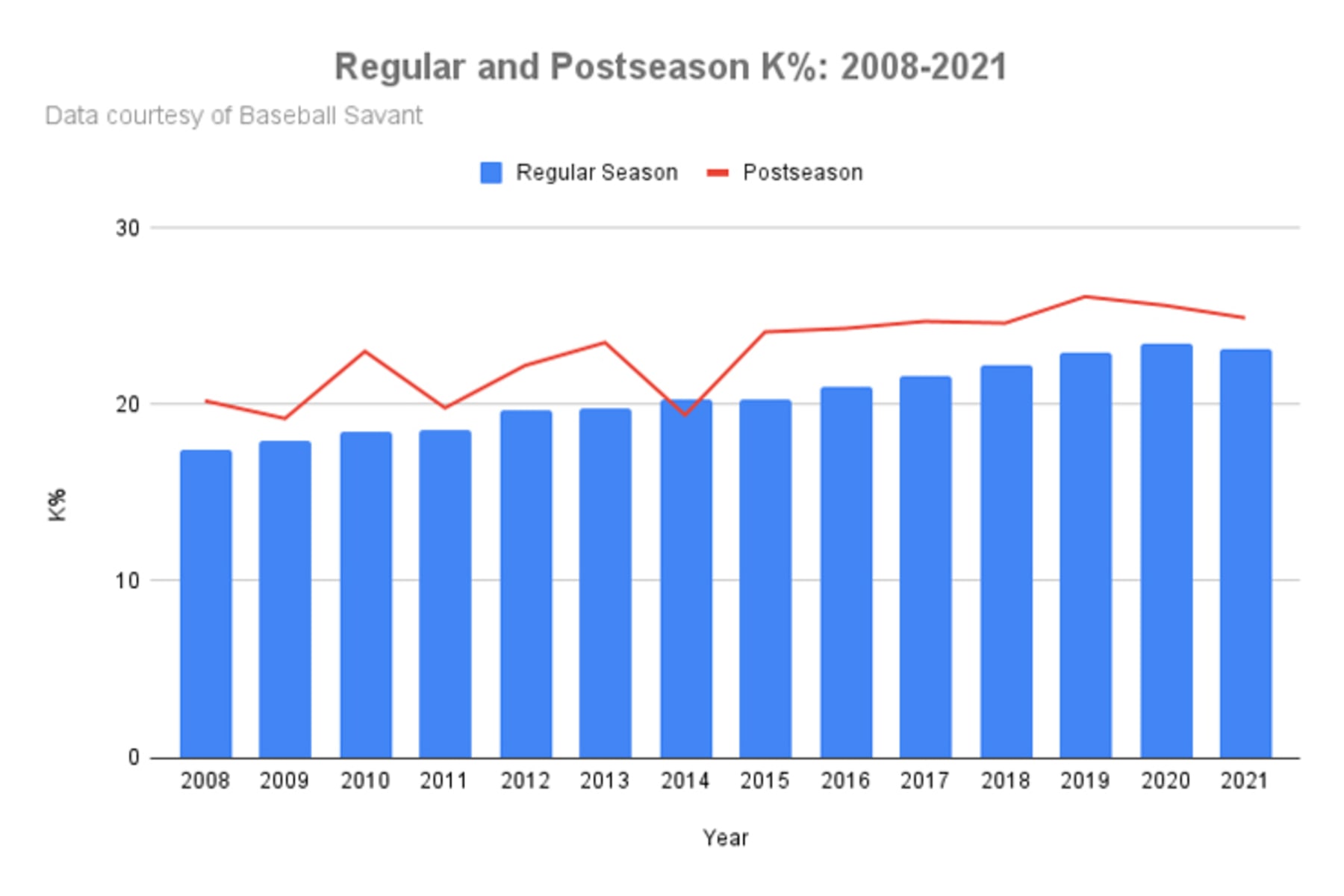
Just how much of a difference does winning the strikeout battle make in October? Pretty big. Of the 269 playoff games played between 2015 and 2021, teams that struck out fewer times than their opponents won 153 times. That's a .569 winning percentage.
Why to Sell the Guardians
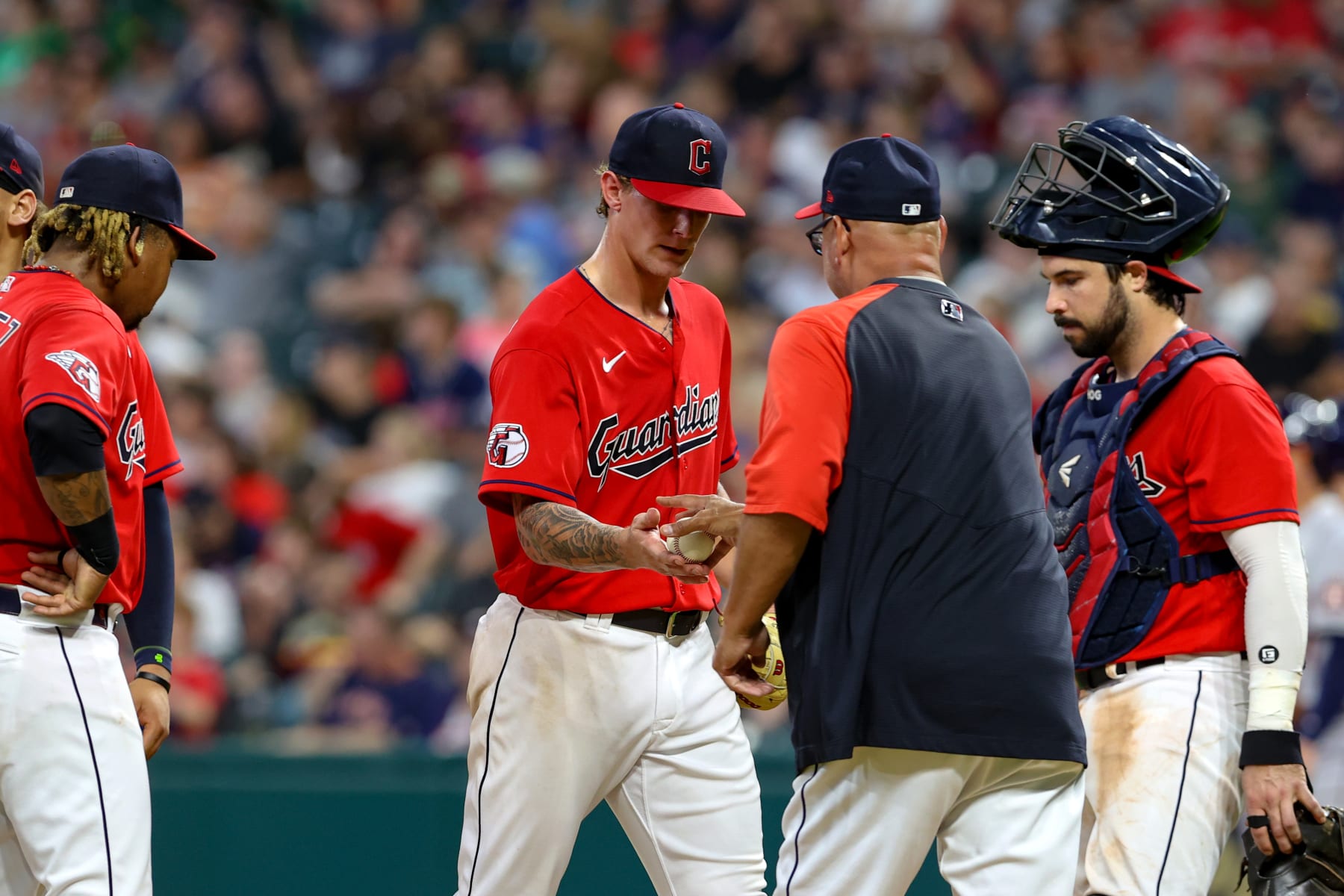
Even if the Guardians make the playoffs as the AL Central champion, they aren't likely to also close the double-digit gap in the standings between them and the East-leading Yankees and West-leading Houston Astros.
If so, the Guardians would face longer odds of advancing in the playoffs by default. Whereas the two best division winners in a given league go straight to the Division Series under MLB's new playoff format, the third-best division winner gets no such break. It has to win a best-of-three series in the Wild Card Round to advance.
Oh, and about that success rate for when teams log fewer strikeouts than their opponents in the playoffs.
It's definitely good, but it's not the most telling datapoint for what really gets teams through October. Nothing does that like home runs. Between 2015 and 2021, teams that won the home run battle within a game also won the game itself 175 times. That's a .651 winning percentage.
This, too, doesn't bode as well for the Guardians. The 87 home runs they've hit this season place them ahead of only the lowly Tigers among all of MLB.
The Guardians obviously didn't plan on being this punchless on offense in 2022. They had every reason to pencil Franmil Reyes in for 30-plus home runs in support of Ramírez in the middle of the lineup. But the big guy simply never showed up, hitting .213 with nine homers in 70 games before Cleveland designated him for assignment on Saturday.
The jettisoning of Reyes would have been easier to stomach if it happened in the wake of the Guardians adding a big-ticket slugger ahead of the Aug. 2 trade deadline. They did not add one of those. Or really anything else, for that matter.
Without a power-hitting savior, the Guardians' best hope of winning the oh-so-crucial home run battle in October may not be their offense generating long balls, but their pitching staff preventing them. Yet this isn't necessarily a staff specialty, as it ranks in the middle of the pack among AL clubs in home runs allowed per nine innings.
More broadly, there's the question of whether this is the team that's going to snap the AL Central out of its recent playoff funk. No AL Central team has won a playoff series since Cleveland dispatched the Blue Jays in the 2016 ALCS. Worse, AL Central clubs are just 4-19 in postseason games since 2017.
This speaks to the general weakness of the AL Central relative to the other two divisions in the American League, to which these Guardians aren't exactly bucking the trend. They're 28-21 against AL Central foes, but only 21-23 against foes from the East and West.
The Final Verdict
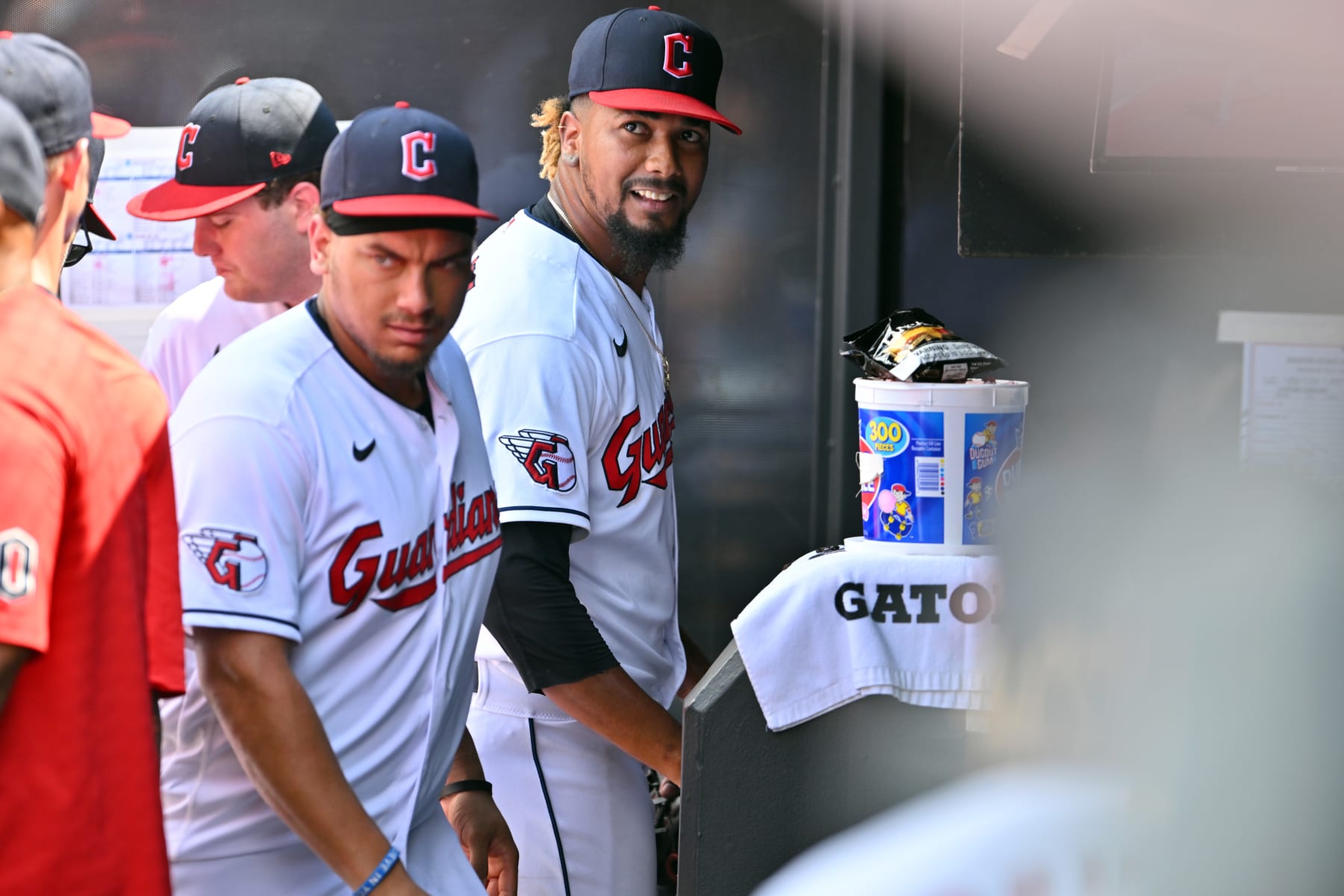
Because we simply must have our cake and eat it too, we'll leave everyone with a conclusion and an asterisk.
To the former, we'll sell the idea that the Guardians are a threat for a deep playoff run.
As much as there is to like about the top end of their rotation, the back end of their bullpen, their defense and their contact-happy offense, it's hard to decide which is a worse omen: that said offense generally doesn't do what works best in October, or that they haven't been any less of a pushover than the AL Central contenders that came before them.
But do they deserve better than a 3.4 percent chance to make it to the World Series and a meager 1 percent chance to win it? You bet, and that's the asterisk.
Not all of recent history is working against the Guardians after all. They bear a resemblance to the 2015 Kansas City Royals, who arose from a weak AL Central to win the World Series even though they were out-homered by their opponents 21-17 across three playoff series.
Rather than home runs, the '15 Royals dispatched teams through excellent work from their front-end starters and back-end relievers, as well as shutdown defense and an offense predicated on situational hitting and baserunning.
Sound familiar?
To be sure, home runs became too prevalent—as in, more prevalent than ever before—between 2016 and 2021 for the Royals model to really catch on. Yet the offensive environment for 2022 has more in common with that of 2015. To wit, the 1.08 home runs per game (per team) being hit this year aren't far off from the 1.01 hit in '15.
On this account, at least, baseball seems ready for a surprise the likes of which the Guardians seem ready, willing and able to provide.
Stats courtesy of Baseball Reference, FanGraphs and Baseball Savant.

